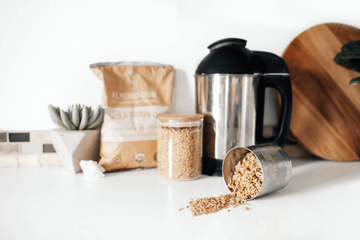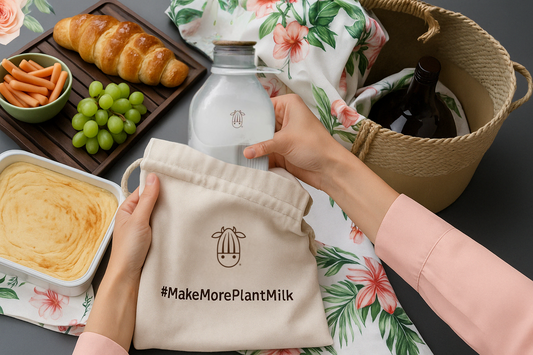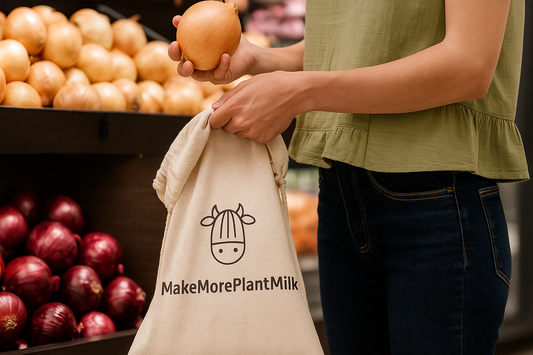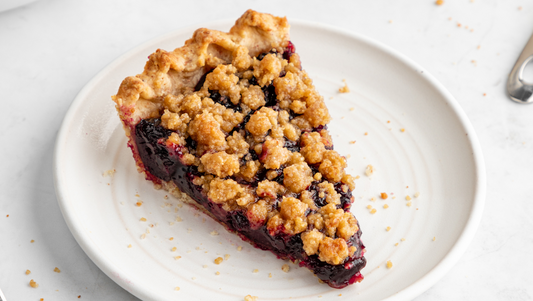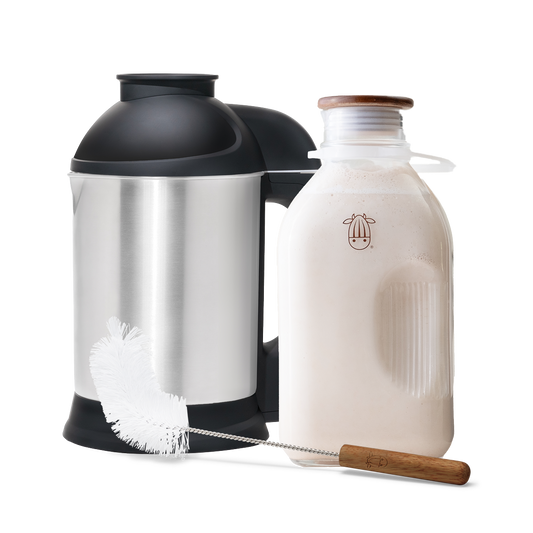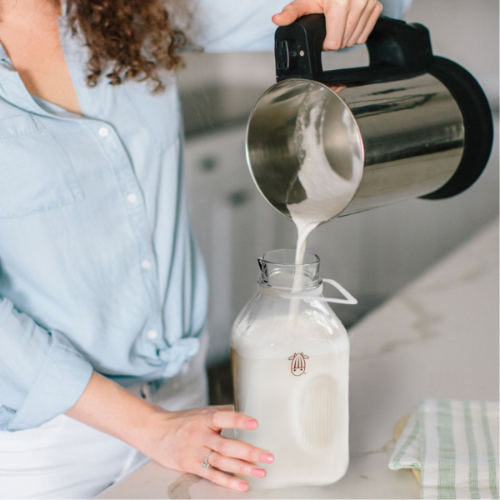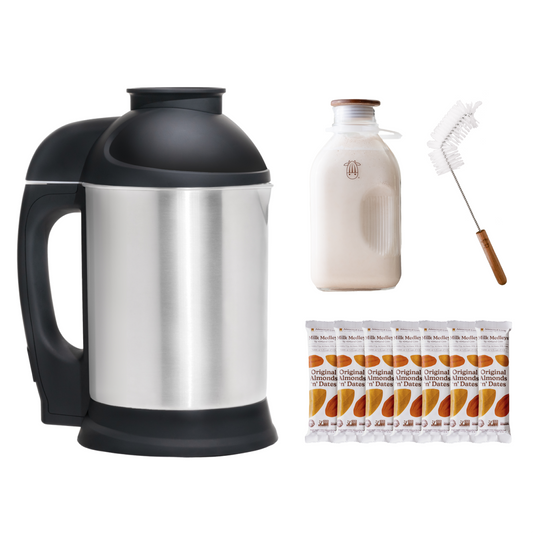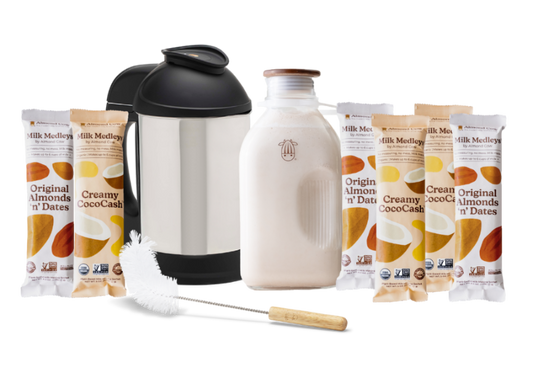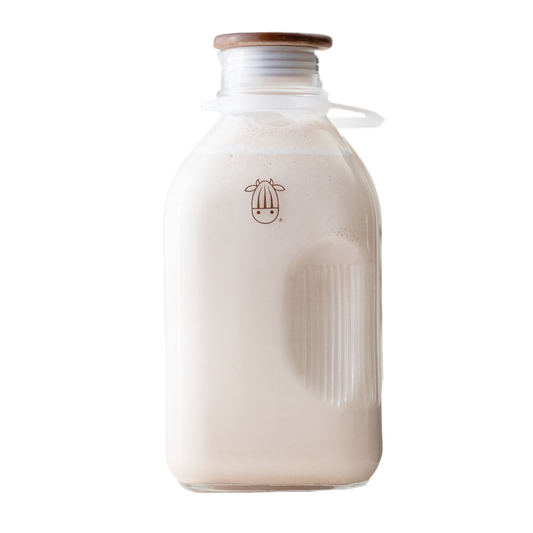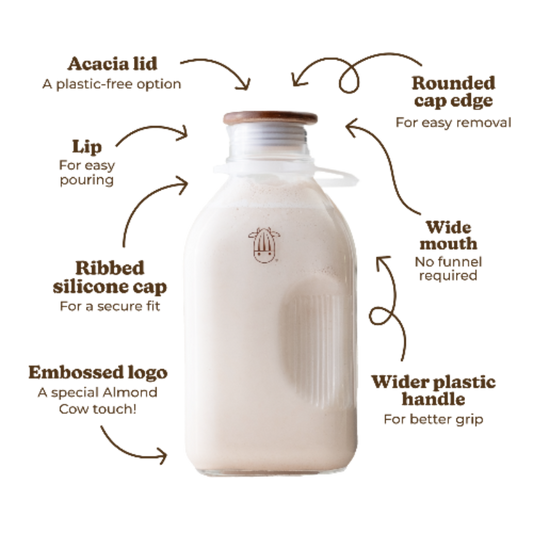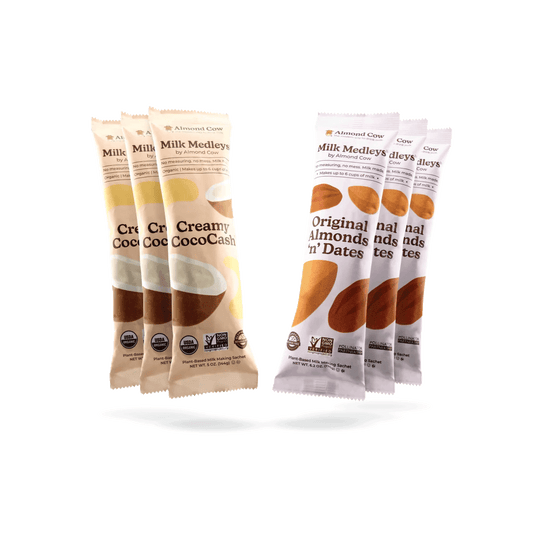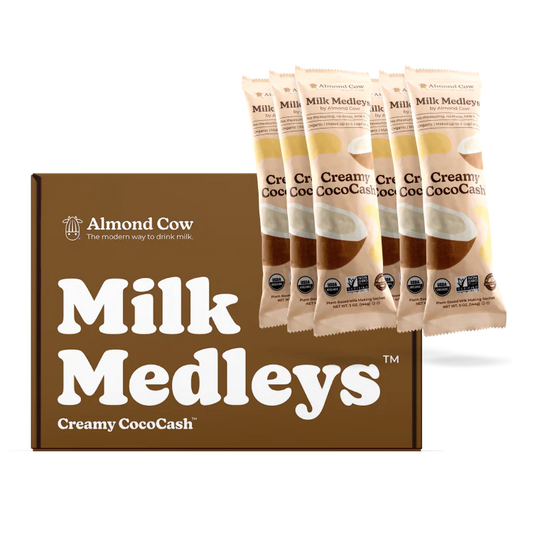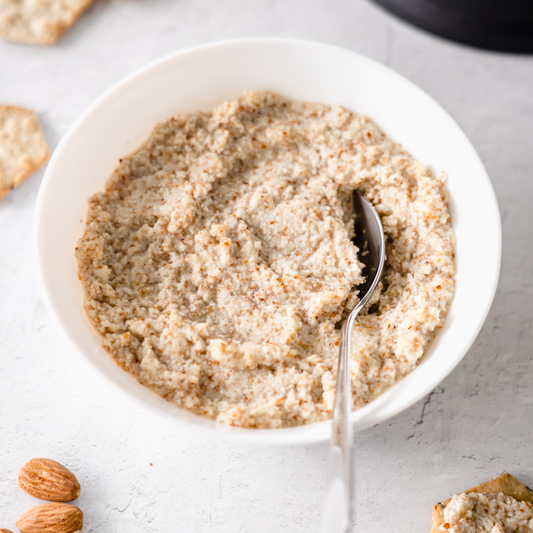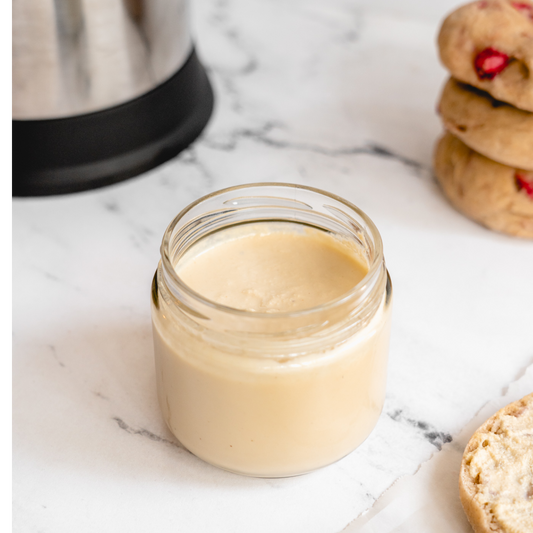The Ultimate Guide to Coconut Milk
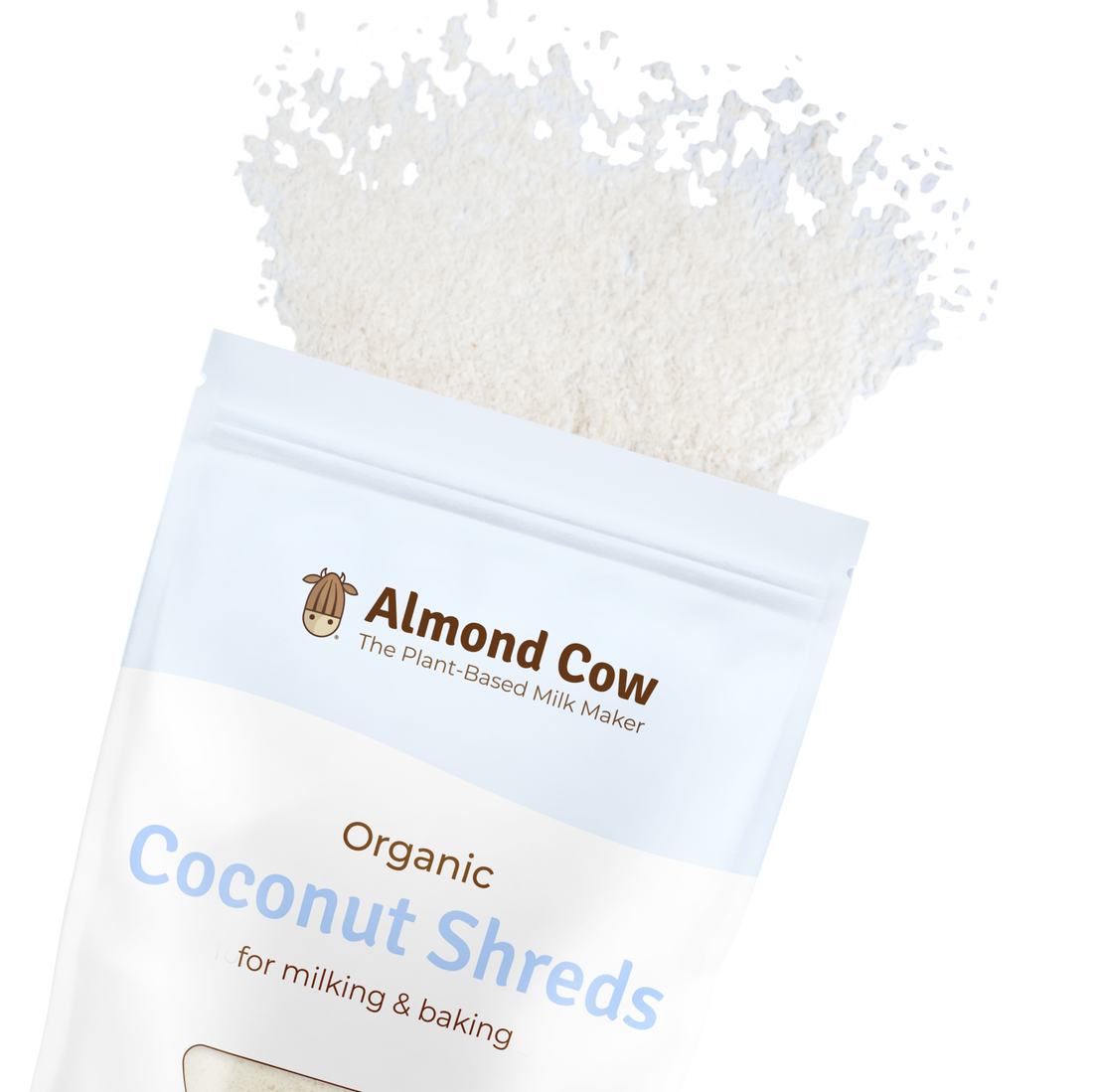
Coconut Milk Benefits, Calories + Nutrition
When it comes to milk alternatives, coconut milk is the quintessential out of the box choice. Sipping on this exotic delicacy will have even hardcore dairy drinkers daydreaming of a beachy sunset.
Besides a taste that transports, why is coconut milk so popular? Is it good for you or too high in fat? Read on for the answers to these questions and many more.

Common Coconut Milk Questions:
What is coconut milk?
Coconut milk is a delicious alternative to dairy milk with its own unique flavor and hint of sweetness. It’s made from the flesh of a mature coconut (aka coconut shreds, flakes, or meat) mixed with water. At the grocery store, you’re most likely to find the rich and creamy version in cans or a thinner version in cartons.
What are the benefits of coconut milk?
Coconut milk is probably most well-known for the healthy fats it provides. Though a low fat diet was touted for years, more recent research shows fats don’t need to be feared - in fact they help fill us up and help us absorb vitamins like A, D, and E. Coconut milk is high in saturated fat, one of the types of fat we’re typically recommended to limit, however research suggests it doesn’t impact cholesterol the same as saturated fat from animal sources. In addition, coconut milk is also an excellent source of MCTs (medium chain triglycerides).
MCTs are unique in the world of fats. They go straight into your bloodstream without needing to be broken down and head for your liver, where they serve as an energy source. MCTs are less likely to be stored as fat than other dietary fats, and evidence indicates they may decrease appetite and boost metabolism.
Coconut milk has also been shown to be an immune booster and is high in vitamins and minerals like potassium, magnesium and iron.
Related Recipe: Almond Joy Coconut Pulpmeal
Is coconut milk gluten-free?
Yes, coconut milk is naturally gluten-free.
How many calories are in coconut milk?
Homemade coconut milk has about 45 calories per 1 cup serving. Canned versions might have up to 200 calories per serving, but cartons of name brand coconut milk typically have about 45 calories per serving (though there's not really that much coconut in those).
Is coconut milk paleo?
Yes, coconut milk is paleo. The Paleo diet consists of meat, vegetables, fruits, nuts, and seeds and coconuts and their products (milk, oil, flakes) fit into these categories
Is coconut milk keto?
Yes, coconut milk is keto. If you’re buying it at the store, however, be wary of sweetened versions, which will kick those out of the keto criteria.
How much protein is in coconut milk?
There is a little less than 1 gm of protein in 1 cup of coconut milk.
How much fat is in coconut milk?
Coconut milk has about 6 gm of fat in a 1 cup serving.

How do you make coconut milk at home?
To make coconut milk at home, you’ll need to blend coconut shreds, flakes, or meat with water and then filter out the pulp with a nut milk bag. Unless, of course, you have an Almond Cow. Then it’s as simple as adding your ingredients (coconut, water, and any extra flavorings or sweeteners you’d like) and pressing the Cow start button!
What type of coconut should you use to make coconut milk?
You can use coconut shreds, meat or flakes to make your own coconut milk.
Why Make Your Own Coconut Milk Rather Than Buy In Store
There are several reasons why making your own coconut milk is better than buying the store versions.
For starters, you get to choose exactly what goes into your milk. Canned and carton versions often contain at least sweeteners, if not thickeners and preservatives as well. Cartoned versions also contain very little actual coconut, so you’re getting more flavoring and water than anything else. With canned coconut milk, you run the risk of unsavory chemicals like BPA in the aluminum - you’ve gotta be on the look out for “BPA-free” cans, as well as those pesky extra ingredients we mentioned already.
Finally, making your own coconut milk will save you money! It costs about half as much to make coconut milk at home as it does to buy a pre-made carton of coconut milk or flakes to make your own coconut milk with a nut milk maker like Almond Cow.
Coconut Milk Nutrition Information
Store-bought coconut milks tend to be lower in calories, fat and protein, typically because they don’t contain much actual coconut. Remember, they’re likely to also contain some kind of preservatives, flavorings, and sweeteners.
When you use Almond Cow you get to enjoy delicious, creamy, homemade coconut milk at the touch of a button. The sky's the limit with how you incorporate coconut milk recipes into your life. We can help get those creative juices flowing with the recipes in our Recipe section - we've even got you covered with recipes for the coconut pulp!
Blackberry Lavender Ice Cream
Ingredients 2 Pints Fresh Blackberries 1 ¼ cups White Sugar, divided Juice of 1/2 Lemon 2 tsp Culinary Grade Lavender 1/3 cup Cashew Pieces 2/3 cup Coconut Shreds 500mL Very...
Read MoreOat Pulp Pancakes with Hazelnut Spread
Make a delicious, wholesome stack of our Oat Pulp Pancakes, topped with homemade hazelnut spread. We promise not to tell if you don't share!
Read MoreBeet Latte
Looking for a unique twist on the classic latte? Try our Beet Latte for all the deliciousness of a regular latte, combined with the nutritional power house of beets!
Read MoreRecipe Categories
Filter By
Additional Blog Detail:
Main Ingredient
Keywords
Meal occasion
Named holiday recipe


